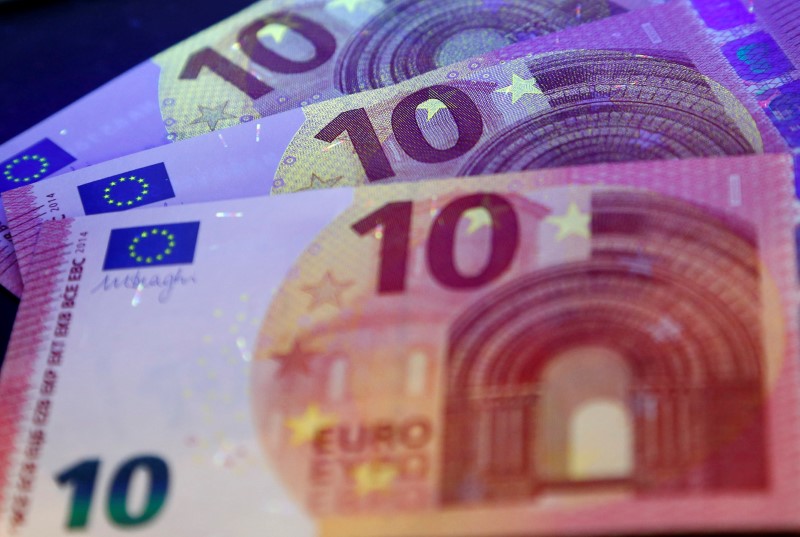By Patrick Graham
LONDON (Reuters) - For years the options market that companies and investors use to hedge against big swings in currencies viewed the euro as a bigger political and structural risk than Britain's pound.
No more.
In the political and market turmoil immediately before and following Britain's decision last June to leave the European Union, financial market investors flipped their long-held bias against the euro and now expect sterling to be the riskier party for years to come.
Reuters data going back to 2012 shows three- and five-year risk reversals -- the cost of taking out an option to buy or sell the pound -- have consistently been below zero.
That indicated it was almost always more expensive to hedge against the risk of euro exchange rates collapsing than of the same happening in sterling.
There are always blips. On a handful of occasions since Mario Draghi's promise to do "whatever it takes" to prop up the euro in 2012, the single currency has briefly been valued as steadier for the long term.
But since an initial jump in the first six months of 2016, both three- and five-year euro-sterling risk reversal contracts have held consistently in positive territory, indicating the tail risk -- the risk of a low probability, high impact event -- is now instead with the pound.
That is the first time in Reuters' historical data on the options market and means it will be increasingly costly for investors exposed to the pound's exchange rate to insure portfolios against further slides.
With the pound pummelled by political and economic uncertainty, the euro/sterling five-year risk reversal
This followed open disagreement among Bank of England policymakers on the outlook for interest rates and, by extension, the pound.
On Tuesday BoE Governor Mark Carney said now was not the time to raise rates, warning of weak wage growth as Britain prepared to quit the EU.
On Wednesday, the central bank's chief economist, Andy Haldane, said he was likely to join those voting for a hike later this year.
Bankers are cautious about predicting further steep falls in the pound, but some senior currency market players wonder what will happen to sterling if Brexit talks turn bad.
Some in the sales teams that focus on selling cheap option plays to hedge fund investors wanting to speculate on currency moves say the change is reflective of the broad swing in political risk.
"Risk reversals tend to price fear," said the head of hedge fund sales with one of the big five international banks who run 40 percent of the $5 trillion a day global currency market.
"It is when you are thinking you are going to get a big gap move. And historically the gap move that was on people's minds over the last five years was the euro break-up story. This signals a change in the potential tail risks."
At a time when global measures of volatility are at rock bottom, those in sterling have jumped in the past fortnight, driven initially by a shock electoral turnaround that saw Prime Minister Theresa May deprived of her parliamentary majority.
Analysts say the move in the longer-term risk reversals, however, point to a broader questioning of faith in the pound.
"The market is willing to pay a higher premium to hedge against a large sterling depreciation," said Sam Lynton-Brown, a strategist with BNP Paribas (PA:BNPP) in London.

"That is a change."